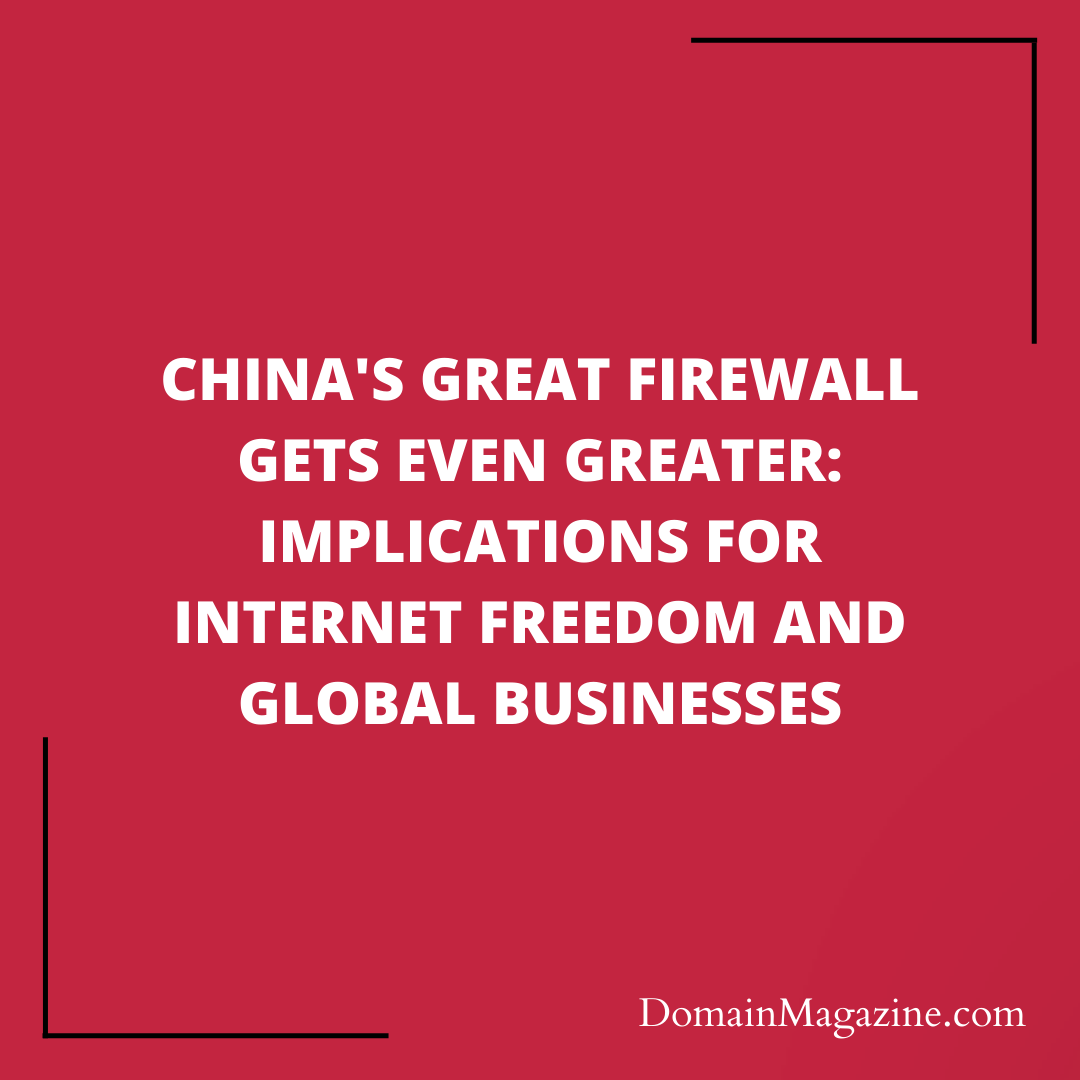In a recent directive, Chinese President Xi Jinping has called for the construction of a Beijing-supervised “security barrier” around the country’s internet, aiming to bolster the infamous Great Firewall of China. This move raises concerns about the potential implications for internet freedom within the country and its impact on global businesses trying to operate in the world’s second-largest economy.
The Expansion of the Great Firewall

The term “security barrier” used in the directive harks back to the Great Firewall, a comprehensive set of legislative actions and technologies designed to regulate and control the flow of information within China. The Great Firewall ensures censorship and limited access to foreign media services or entities that do not align with the Chinese Communist Party’s ideologies.
President Xi’s directive emphasizes the Party’s absolute leadership over the internet sector and aims to strengthen cybersecurity measures. While the directives may be strong and somewhat vague, Chinese Communist Party committees are tasked with ensuring their implementation, indicating a more stringent approach to internet governance.
Impact on Internet Freedom
The Chinese government’s continuous efforts to tighten control over the internet have raised concerns about internet freedom and the suppression of dissenting voices within the country. The Great Firewall already restricts access to major foreign websites, including Google, Facebook, and Twitter, making it challenging for Chinese citizens to access unbiased information and communicate freely with the global community.
This further expansion of the Great Firewall could lead to a more isolated Chinese internet space, with limited exposure to diverse perspectives and alternative viewpoints. Advocates for human rights and freedom of expression are apprehensive that the directive might lead to an increase in online censorship, stifling open discourse and creativity.
Impact on Global Businesses
For multinational companies operating in or seeking to enter the Chinese market, the expansion of the Great Firewall poses significant challenges. Platforms such as LinkedIn, Google, Meta (formerly Facebook), and Zoom have already experienced difficulties complying with China’s internet regulations, leading some to exit the market entirely. The “security barrier” directive indicates a potential tightening of controls over data privacy, content, and information dissemination, creating a more complex operating environment for businesses.
Businesses operating in China need to navigate through a constantly evolving and ambiguous regulatory landscape, facing potential disruptions and compliance issues. The implementation of cybersecurity measures may require foreign companies to modify their services and operations to align with China’s internet policies, potentially compromising their core values or user experience.

Mitigating Risks and Moving Forward
As the Chinese government continues to reinforce its grip on the internet sector, businesses must adopt proactive measures to navigate these challenges effectively. Companies need to enhance their understanding of China’s internet regulations, work closely with local partners to ensure compliance, and have contingency plans to manage potential disruptions.
Investing in robust cybersecurity measures and data protection is crucial to safeguarding user information and maintaining trust with consumers. Diversifying online communication channels and ensuring a strong presence on domestic platforms that align with the Chinese government’s values can help businesses maintain visibility and engagement with their Chinese audience.
Conclusion
China’s decision to expand the Great Firewall with a “security barrier” directive raises serious concerns about internet freedom within the country and its implications for global businesses. The move could further isolate China’s internet space and restrict access to diverse perspectives, affecting the free flow of information and communication.
To navigate this evolving landscape, businesses must remain vigilant, prioritize compliance with China’s internet regulations, and seek creative solutions to maintain their presence and engage with Chinese consumers. As the situation continues to evolve, a delicate balance between respecting local laws and upholding global principles will be critical for businesses operating in the Chinese digital market.


Join the Discussion